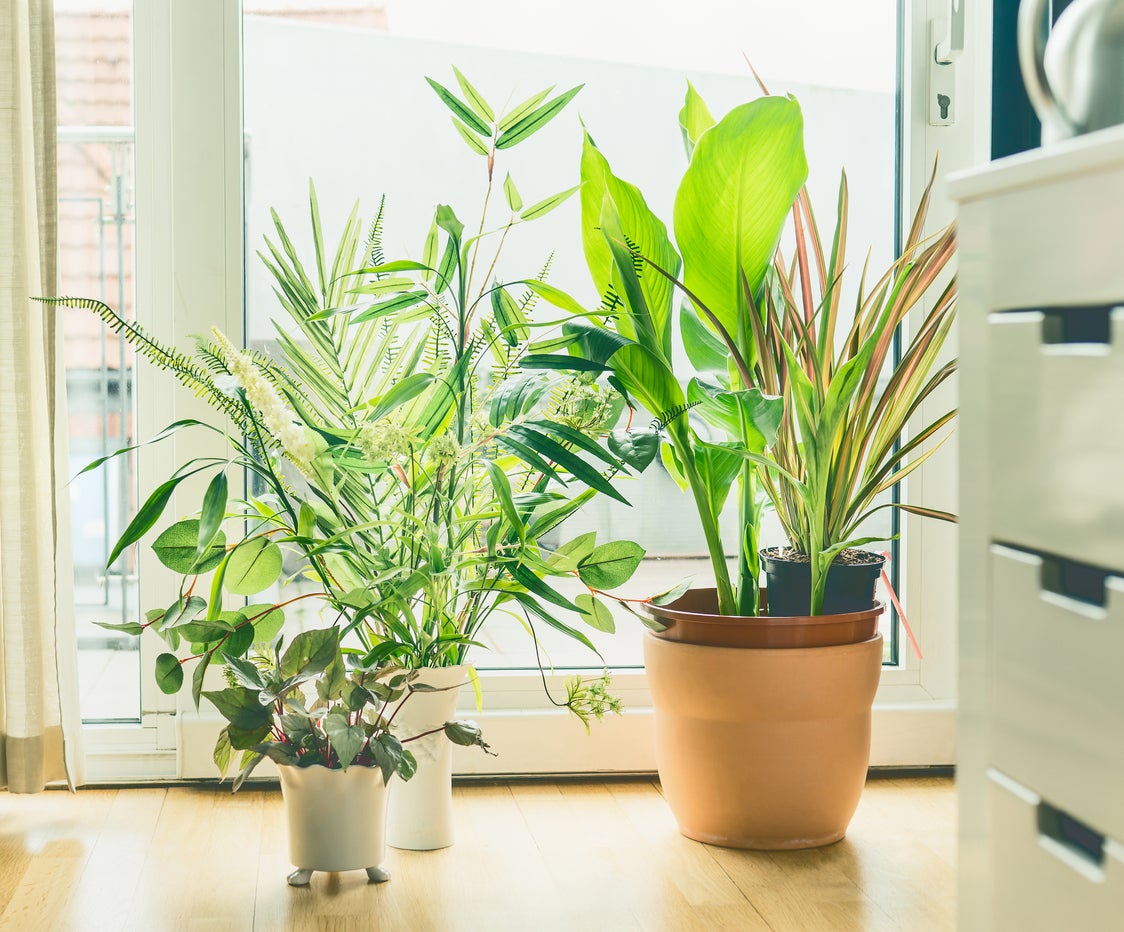Air Purifying Plant Numbers – How Many Plants For Clean Air Indoors


Sign up for the Gardening Know How newsletter today and receive a free copy of our e-book "How to Grow Delicious Tomatoes".
You are now subscribed
Your newsletter sign-up was successful
Houseplants have long been known to purify our toxic indoor air. How many houseplants do you need to purify your indoor air? Keep reading to find this out, and more!
Air Purifying Plant Numbers
There was a famous NASA study that was conducted back in 1989 that found that many houseplants are able to remove many toxic and cancer causing volatile organic compounds from our indoor air. Formaldehyde and benzene are two of these compounds.
Bill Wolverton, the NASA scientist who conducted this study, provided some insight into the number of plants per room that you would need to help purify indoor air. Although it is difficult to say exactly how many plants are needed to purify indoor air, Wolverton recommends at least two good sized plants for every 100 square feet (approximately 9.3 square meters) of indoor space.
The bigger the plant and leafier the plant, the better. This is because air purification is influenced by the surface area of leaves present.
Another study, funded by Hort Innovation, found that even just one houseplant in an average room (4 meters by 5 meters room, or roughly 13 by 16 feet) improved air quality by 25%. Two plants produced a 75% improvement. Having five or more plants produced even better results, with the magic number being 10 plants in a room of the size previously mentioned.
In a larger room (8 x 8 meters, or 26 by 26 feet), 16 plants were needed to provide a 75% improvement in air quality, with 32 plants producing the best results.
Of course, all of this will vary on the size of the plant. Plants with more leaf surface area, as well as larger pots, will produce the best results. Bacteria and fungi in the soil actually use broken down toxins, so if you can expose the surface of your soil in your potted plants, this can aid in air purification.
Sign up for the Gardening Know How newsletter today and receive a free copy of our e-book "How to Grow Delicious Tomatoes".
Plants for Clean Air Indoors
What are some of the best plants for clean air indoors? Here are some of the good options that NASA reported in their study:
- Golden Pothos
- Dracaena (Dracaena marginata, Dracaena ‘Janet Craig,’ Dracaena ‘Warneckii,’ and the common “corn plant” Dracaena)
- Ficus benjamina
- English Ivy
- Spider Plant
- Sansevieria
- Philodendrons (Philodendron selloum, elephant ear philodendron, heart leaf philodendron)
- Chinese Evergreen
- Peace Lily

Raffaele Di Lallo is a houseplant expert, writer, and founder of Ohio Tropics, a popular plant care blog and social media presence dedicated to helping people grow healthy houseplants. He is the author of Houseplant Warrior: 7 Tips to Unlocking the Mysteries of Houseplant Care and has written extensively on plant care for outlets including Gardening Know How. With over 30 years of personal plant experience and formal training in horticulture, Raffaele helps readers demystify indoor plants through clear, practical advice.